AKS 2022- Introduction to NFT, Artificail Intelligence, Data Science & its Applications
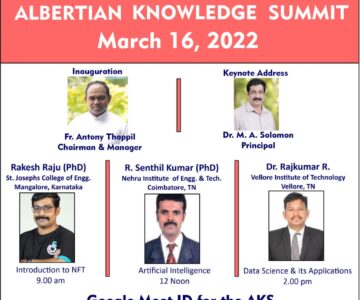
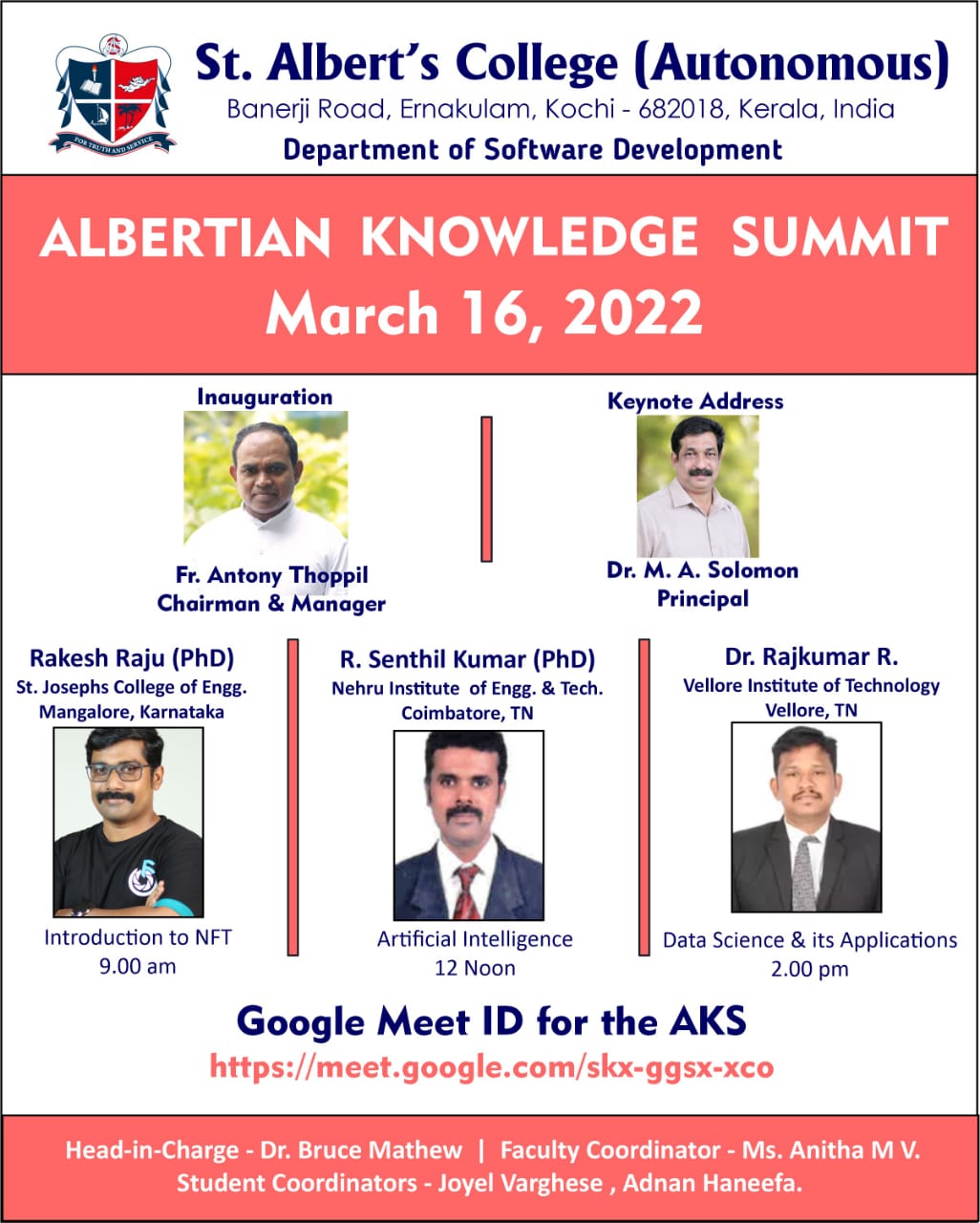
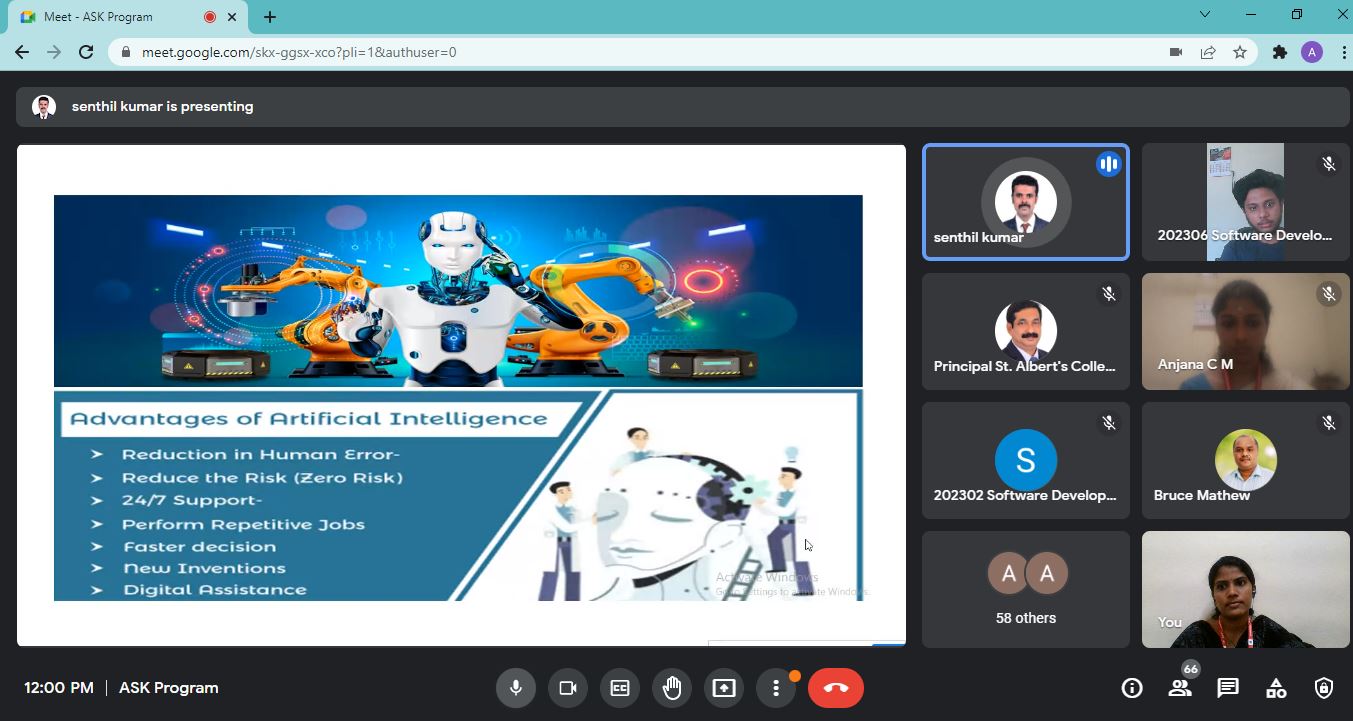
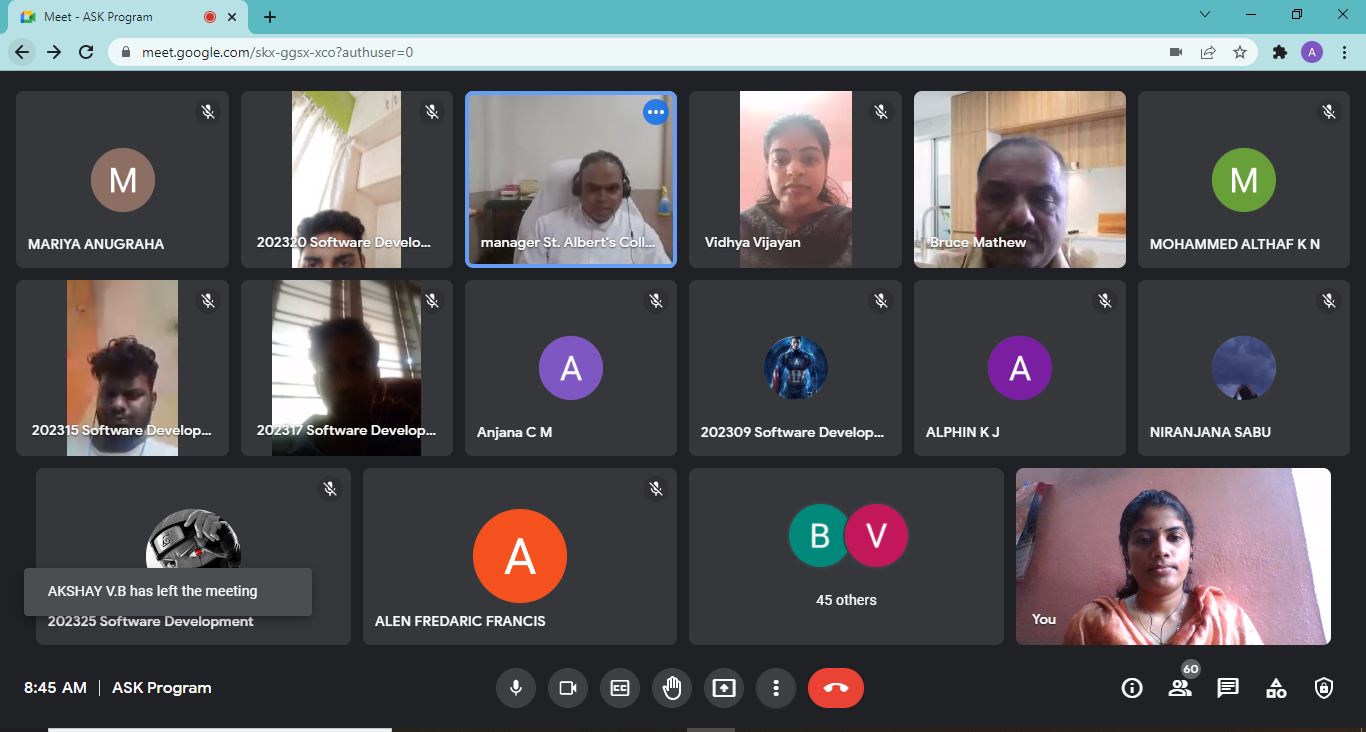



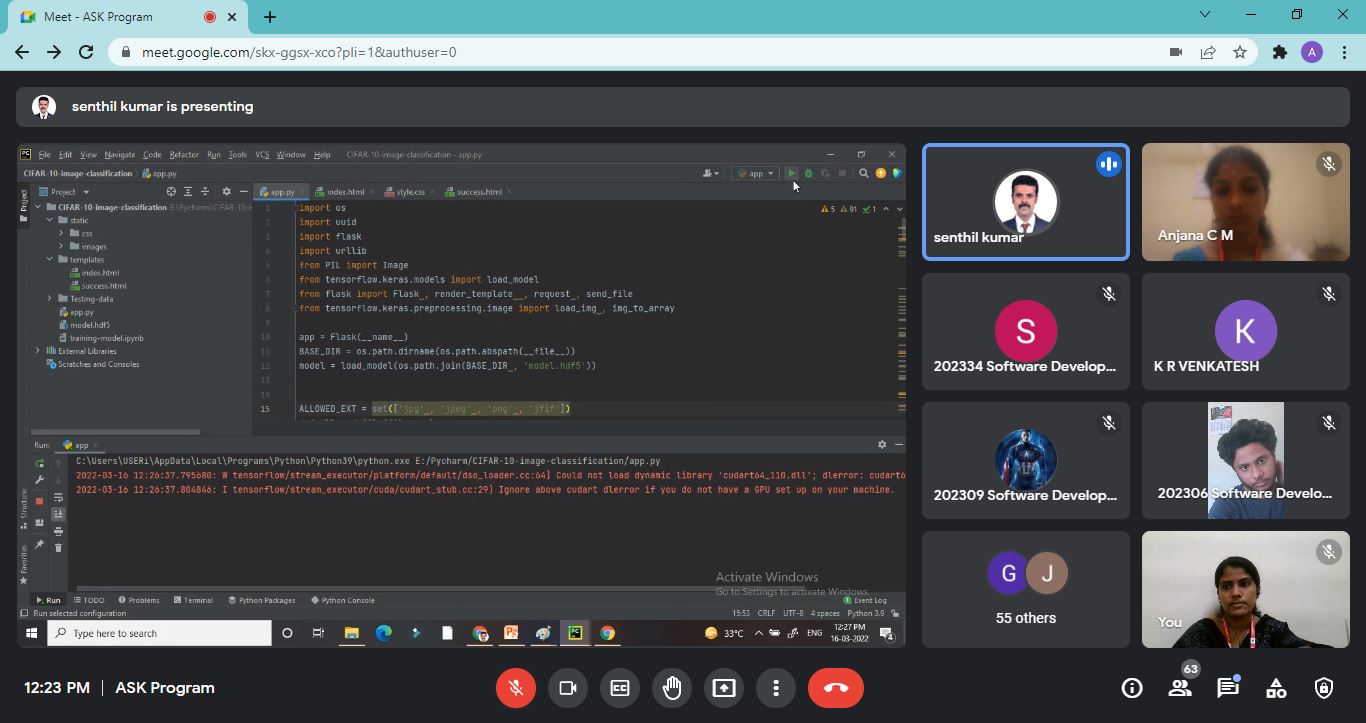
Session I: Introduction to NFT
Resource Person
Mr. Rakesh Raju
Assistant Professor, St. Josephs College of Engg. Mangalore. Karnataka
The Department of Software Development organized an online session on “Introduction to NFT” for the Students and Faculties as part of Albertian Knowledge Summit (AKS). Non-fungible token. built using the same kind of programming as cryptocurrency, like Bitcoin or Ethereum, but that’s where the similarity ends. Physical money and cryptocurrencies are “fungible,” meaning they can be traded or exchanged for one another. Dr. Bruce Mathew, Head-in-Charge, Dept. of Software Development coordinated the programme. There were a total of 60 participants including 4 teaching faculty members and 56 students.
The session was led by Mr. Rakesh Raju, Assistant Professor, St. Josephs College of Engg. Mangalore. Karnataka. Darwish Sajan, Student, B.Voc Software Development presented the welcome speech. The Speaker of the Session Mr. Rakesh Raju presented the keynote address on NFT. An NFT can be most anything digital, such as art, images, videos, music, memes, and tweets. The process of creating NFTs is “minting,” similar in concept to metal coins that are minted (stamped) to confirm their legitimacy. Minting an NFT produces a one-of-a-kind token on the blockchain and an electronic certificate of authenticity. NFTs are gaining massive popularity now because they are becoming an increasingly popular way to showcase and sell your digital artwork.
A non-fungible token is created by an artist, creator, or license-holder through a process called minting. Minting is a process that involves signing a blockchain transaction that outlines the fundamental token details, which is then broadcasted to the blockchain to trigger a smart contract function which creates the token and assigns it to its owner. Under the hood, a non-fungible token consists of a unique token identifier, or token ID, which is mapped to an owner identifier and stored inside a smart contract. When the owner of a given token ID wishes to transfer it to another user, it is easy to verify ownership and reassign the token to a new owner.
Mr. Rakesh Raju also detailed about the working of NFT. NFT works on blockchain as it gives users complete ownership of a digital asset. For instance, if you’re a sketch artist, and if you convert your digital asset to an NFT, what you get is proof of ownership, powered by Blockchain.
After the session, a feedback about the session was collected from all the participants. Joyel Varghese ,Student, B.Voc Software Development delivered the vote of thanks.
Session II: Artificial Intelligence
Resource Person
- Senthil Kumar
Assistant Professor, Nehru Institute of Engg. & Tech. Coimbatore, Tamilnadu
The Department of Software Development organized an online session on “Artificial Intelligence” for the Students and Faculties as part of Albertian Knowledge Summit (AKS). Artificial intelligence (AI) is the ability of a computer or a robot controlled by a computer to do tasks that are usually done by humans because they require human intelligence and discernment. The field of artificial intelligence has a tremendous career outlook, The Artificial Intelligence Engineer mission is to develop intelligent algorithms capable of learning, analysing and predicting future events. Their role is to create machines capable of reasoning like the human brain. Dr. Bruce Mathew, Head-in-Charge, Dept. of Software Development coordinated the programme. There were a total of 66 participants including 4 teaching faculty members and 65 students.
The session was led by R. Senthil Kumar (Ph.D), Assistant Professor, Nehru Institute of Engg. & Tech. Coimbatore, Tamilnadu. The importance of Artificial Intelligence in the modern era was discussed in this session. Sreya Titus, Student, B.Voc Software Development presented the welcome speech. The Speaker of the Session R. Senthil Kumar presented the keynote address on “Artificial Intelligence” and explained what it is and Why AI matters. Artificial intelligence (AI) makes it possible for machines to learn from experience, adjust to new inputs and perform human-like tasks. Most AI examples that you hear about today – from chess-playing computers to self-driving cars – rely heavily on deep learning and natural language processing. Using these technologies, computers can be trained to accomplish specific tasks by processing large amounts of data and recognizing patterns in the data. The speaker visualized one demo project of Artificial Intelligence for the students. Through this demo project presentation speaker shared the importance of Python language.
After the session, a feedback about the session was collected from all the participants. Hridhya H, Student, B.Voc Software Development delivered the vote of thanks.
Session III: Data Science & its Applications
Resource Person
Dr. RajKumar R
Assistant Professor, Vellore Institute of Technology, Tamilnadu
The Department of Software Development organized an online session on “Data Science & its Applications” for the Students and Faculties as part of Albertian Knowledge Summit (AKS). Data science encompasses preparing data for analysis, including cleansing, aggregating, and manipulating the data to perform advanced data analysis. Analytic applications and data scientists can then review the results to uncover patterns and enable business leaders to draw informed insights. Data science continues to evolve as one of the most promising and in-demand career paths for skilled professionals. Today, successful data professionals understand that they must advance past the traditional skills of analyzing large amounts of data, data mining, and programming skills. In order to uncover useful intelligence for their organizations, data scientists must master the full spectrum of the data science life cycle and possess a level of flexibility and understanding to maximize returns at each phase of the process.
Dr. Bruce Mathew, Head-in-Charge, Dept. of Software Development coordinated the programme. There were a total of 65 participants including 4 teaching faculty members and 61 students. The session was led by Dr. Rajkumar R, Vellore Institute of Technology, Tamilnadu
The Speaker of the Session Dr. Rajkumar R presented the keynote address on “Data Science & its Applications”. Data Science is the deep study of a large quantity of data, which involves extracting some meaningful from the raw, structured, and unstructured data. The extracting out meaningful data from large amounts use processing of data and this processing can be done using statistical techniques and algorithm, scientific techniques, different technologies, etc. It uses various tools and techniques to extract meaningful data from raw data. Data Science is also known as the Future of Artificial Intelligence. The most useful application of Data Science is Search Engines. As we know when we want to search for something on the internet, we mostly used Search engines like Google, Yahoo, Safari, Firefox, etc. So Data Science is used to get Searches faster.
After the session, a feedback about the session was collected from all the participants. Student, B.Voc Software Development delivered the vote of thanks.



